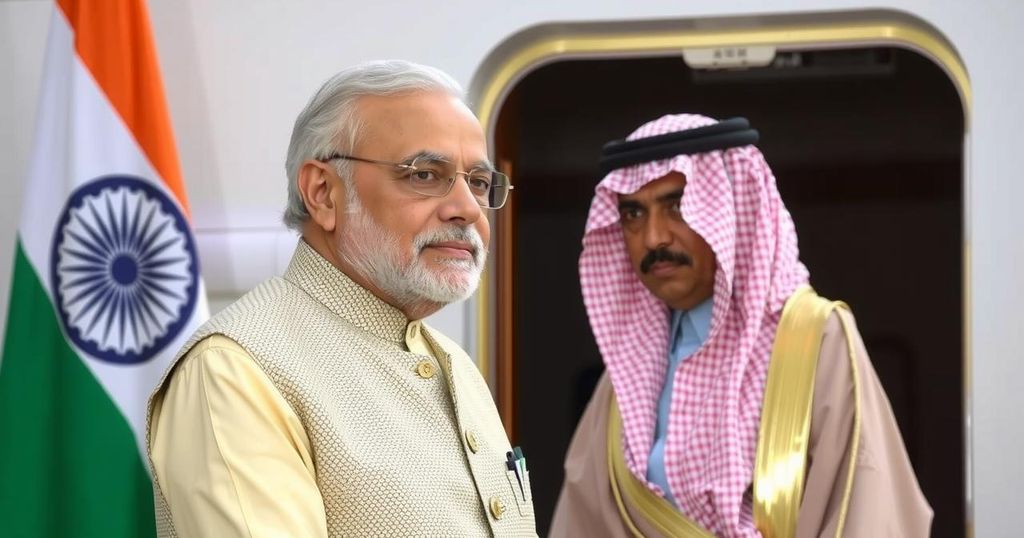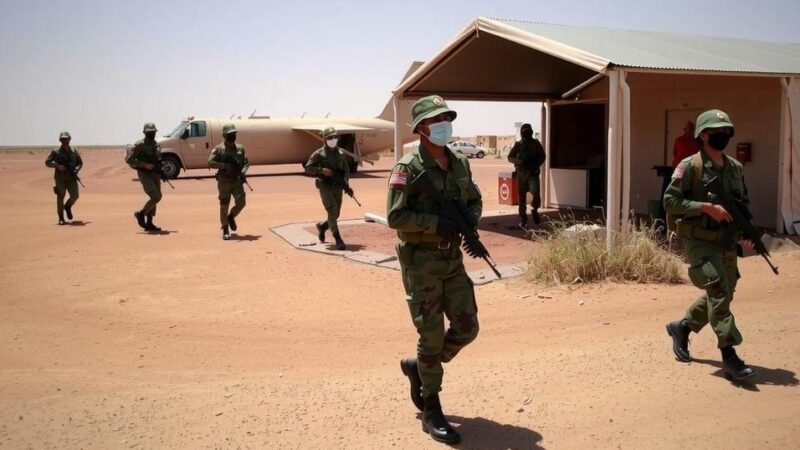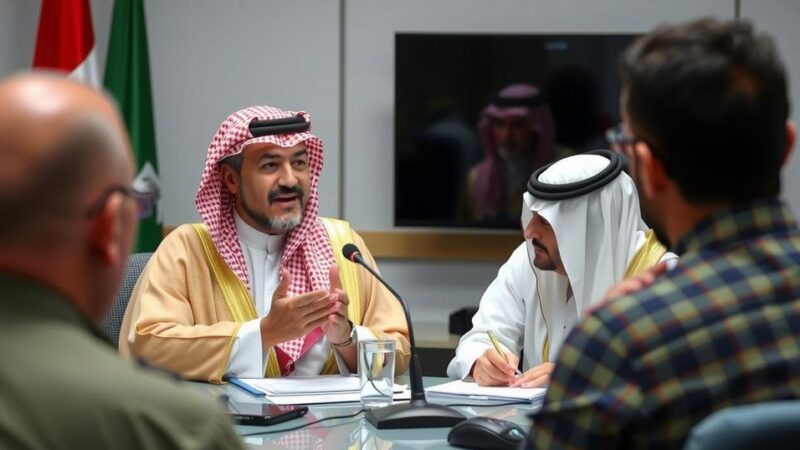Prime Minister Narendra Modi began a historic two-day visit to Kuwait, the first by an Indian PM in 43 years, meeting senior officials and emphasizing shared interests in regional stability. His agenda includes discussions on investment and defense, engaging with the Indian diaspora, and attending cultural events, reflecting deepening ties between the two nations.
On Saturday, Prime Minister Narendra Modi commenced a two-day visit to Kuwait, marking a historic occasion as he is the first Indian prime minister to visit the Gulf nation in 43 years. Invited by Sheikh Meshal Al-Ahmad Al-Jaber Al-Sabah, the Amir of Kuwait, Modi was warmly welcomed by senior officials upon arrival. Emphasizing the shared interests between India and Kuwait regarding peace, security, and stability in West Asia, Modi noted the strength of the historical ties nurtured over generations between the two nations.
This visit occurs shortly after significant political changes in the Middle East, particularly following the collapse of Bashar al-Assad’s regime in Syria, and amid ongoing discussions of a potential ceasefire between Israel and Hamas in Gaza. Modi’s last visit to Kuwait reflects an intention to solidify cooperation, as the previous Indian Prime Minister to visit was Indira Gandhi in 1981.
During his visit, PM Modi is scheduled to engage with Kuwaiti leadership and anticipate fruitful discussions aimed at establishing a robust future partnership between India and Kuwait. Additionally, he plans to engage with the Indian diaspora in Kuwait, acknowledging their substantial contributions to enhancing the bilateral relationships. His itinerary includes a visit to an Indian labor camp and participation in the Gulf Cup football tournament’s opening ceremony, presenting an opportunity to address and promote initiatives beneficial to both nations as well as the broader region.
Furthermore, discussions will focus on a potential bilateral investment treaty and a defense cooperation pact, highlighting the intention to substantially enhance the cooperative framework between the two countries. In his departure statement, Modi exuded optimism, asserting that these meetings would pave the way for a futuristic partnership intended for the mutual benefit of both peoples and the regional stability.
The significance of Prime Minister Modi’s visit to Kuwait lies in the historical context, as it is the first visit by an Indian prime minister in over four decades, a move anticipated to strengthen diplomatic and economic ties. The relationship between India and Kuwait has longstanding roots, emphasizing not only trade and energy alliances but also mutual interests in regional security. Modi’s visit comes at a crucial time, considering the evolving political landscape in the Middle East, which includes ongoing conflicts and negotiations. This context reinforces the urgency and importance of establishing a robust diplomatic strategy to enhance cooperation in various sectors.
In conclusion, Prime Minister Narendra Modi’s two-day visit to Kuwait exemplifies a turning point in Indo-Kuwaiti relations, reinforcing historical ties and shared interests. The discussions anticipated during this visit, particularly regarding a bilateral investment treaty and defense cooperation, highlight the commitment to deepen ties further. Moreover, Modi’s engagement with the Indian diaspora showcases India’s acknowledgment of their role in strengthening bilateral relations, promising a cooperative future benefitting both nations and contributing to regional stability.
Original Source: www.hindustantimes.com







